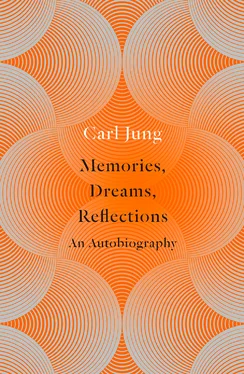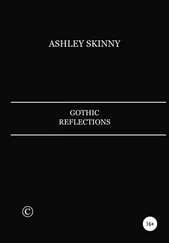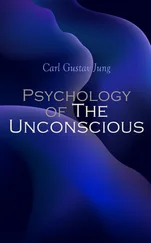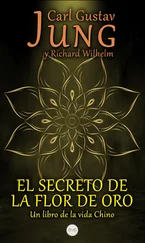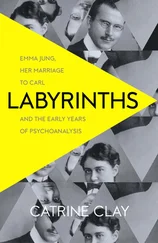Far more significant than the difficulties of formal organisation of the text were those prior obstacles, of a more personal kind, to which Jung refers in a letter to a friend of his student days. Replying to a request, in the latter part of 1957, to set down the memories of his youth, he wrote:
“… You are quite right. When we are old, we are drawn back, both from within and without, to memories of youth. Once before, some thirty years ago, my pupils asked me for an account of how I arrived at my conceptions of the unconscious. I fulfilled this request by giving a seminar. 1During the last years the suggestion has come to me from various quarters that I should do something akin to an autobiography. I have been unable to conceive of my doing anything of the sort. I know too many autobiographies, with their self-deceptions and downright lies, and I know too much about the impossibility of self-portrayal, to want to venture on any such attempt.
“Recently I was asked for biographical information, and in the course of answering some questions I discovered hidden in my memories certain objective problems which seem to call for closer examination. I have therefore weighed the matter and come to the conclusion that I shall fend off other obligations long enough to take up the very first beginnings of my life and consider them in an objective fashion. This task has proved so difficult and singular that in order to go ahead with it, I have had to promise myself that the results would not be published in my lifetime. Such a promise seemed to me essential in order to assure myself the necessary detachment and calm. It became clear that all memories which have remained vivid to me had to do with emotional experiences that arouse uneasiness and passion in the mind — scarcely the best condition for an objective account! Your letter ‘naturally’ came at the very moment when I had virtually resolved to take the plunge.
“Fate will have it — and this has always been the case with me — that all the ‘outer’ aspects of my life should be accidental. Only what is interior has proved to have substance and a determining value. As a result, all memory of outer events has faded, and perhaps these ‘outer’ experiences were never so very essential anyhow, or were so only in that they coincided with phases of my inner development. An enormous part of these ‘outer’ manifestations of my life has vanished from my memory — for the very reason, so it has seemed to me, that I participated in them with all my energies. Yet these are the very things that make up a sensible biography: persons one has met, travels, adventures, entanglements, blows of destiny, and so on. But with few exceptions all these things have become for me phantasms which I barely recollect and which my mind has no desire to reconstruct, for they no longer stir my imagination.
“On the other hand, my recollection of ‘inner’ experiences has grown all the more vivid and colourful. This poses a problem of description which I scarcely feel able to cope with, at least for the present. Unfortunately, I cannot, for these reasons, fulfil your request, greatly as I regret my inability to do so …”
This letter characterises Jung’s attitude. Although he had already “resolved to take the plunge,” the letter ends with a refusal. To the day of his death the conflict between affirmation and rejection was never entirely settled. There always remained a residue of scepticism, a shying away from his future readers. He did not regard these memoirs as a scientific work, nor even as a book by himself. Rather, he always spoke and wrote of it as “Aniela Jaffé’s project,” to which he had made contributions. At his specific request, it is not to be included in his Collected Works.
Jung has been particularly reticent in speaking of his encounters with people, both public figures and close friends and relatives. “I have spoken with many famous men of my time, the great ones of science and politics, with explorers, artists and writers, princes and financial magnates; but if I am honest I must say that only a few such encounters have been significant experiences for me. Our meetings were like those ships on the high seas, when they dip their flags to one another. Usually, too, these persons had something to ask of me which I am not at liberty to divulge. Thus I have retained no memories of them, however important these persons may be in the eyes of the world. Our meetings were without portent; they soon faded away and bore no deeper consequences. But of those relationships, which were vital to me, and which came to me like memories of far-off times, I cannot speak, for they pertain not only to my innermost life but also to that of others. It is not for me to fling open to the public eye doors that are closed forever.”
The paucity of outward events is, however, amply compensated by the account of Jung’s inner experiences, and by a rich harvest of thoughts which, as he himself says, are an integral part of his biography. This is true first and foremost of his religious ideas, for this book contains Jung’s religious testament.
Jung was led to a confrontation with religious questions by a number of different routes. There were his childhood visions, which brought him face to face with the reality of religious experience and remained with him to the end of his life. There was his insuppressible curiosity concerning everything that had led him to do with the contents of the psyche and its manifestations — the urge to know which characterised his scientific work. And, last but not least, there was his conscience as a physician. He was well aware that the patient’s religious attitude plays a crucial part in the therapy of psychic illnesses. This observation coincided with his discovery that the psyche spontaneously produces images with a religious content, that it is “by nature religious.” It also became apparent to him that numerous neuroses spring from a disregard of this fundamental characteristic of the psyche, especially during the second half of life.
Jung’s concept of religion differed in many respects from traditional Christianity — above all in his answer to the problem of evil and his conception of a God who is not entirely good or kind. From the viewpoint of dogmatic Christianity, Jung was distinctly an “outsider.” For all his worldwide fame, this verdict was forcibly borne in upon him by the reactions to his writings. This grieved him, and here and there in this book he expresses the disappointment of an investigator who felt that his religious ideas were not properly understood. More than once he said grimly, “They would have burned me as a heretic in the Middle Ages!” Only since his death have theologians in increasing numbers begun to say that Jung was indubitably an outstanding figure in the religious history of our century.
Jung explicitly declared his allegiance to Christianity, and the most important of his works deal with the religious problems of the Christian. He looked at these questions from the standpoint of psychology, deliberately setting a bond between it and the theological approach. In so doing he stressed the necessity of understanding and reflecting, as against the Christian demand for faith. He took this necessity for granted, as one of the essential features of life. “I find that all my thoughts circle around God like the planets around the sun, and are as irresistibly attracted to Him. I would feel it to be the grossest sin if I were to oppose any resistance to this force,” he wrote in 1952 to a young clergyman.
This book is the only place in his extensive writings in which Jung speaks of God and his personal experience of God. While he was writing of his youthful rebellion against the church, he once said, “At that time I realised God — for me, at least — was one of the most immediate experiences.” In his scientific works Jung seldom speaks of God; there he is at pains to use the term “the God-image in the human psyche.” This is no contradiction. In the one case his language is subjective, based on inner experience; in the other it is the objective language of scientific inquiry. In the first case he is speaking as an individual, whose thoughts are influenced by passionate, powerful feelings, intuitions, and experiences of a long and unusually rich life; in the second, he is speaking as the scientist who consciously restricts himself to what may be demonstrated and supported by evidence. As a scientist, Jung is an empiricist. When Jung speaks of his religious experiences in this book, he is assuming that his readers are willing to enter into his point of view. His subjective statements will be acceptable only to those who have had similar experiences —or, to put it another way, to those in whose psyche the God-image bears the same or similar features.
Читать дальше
